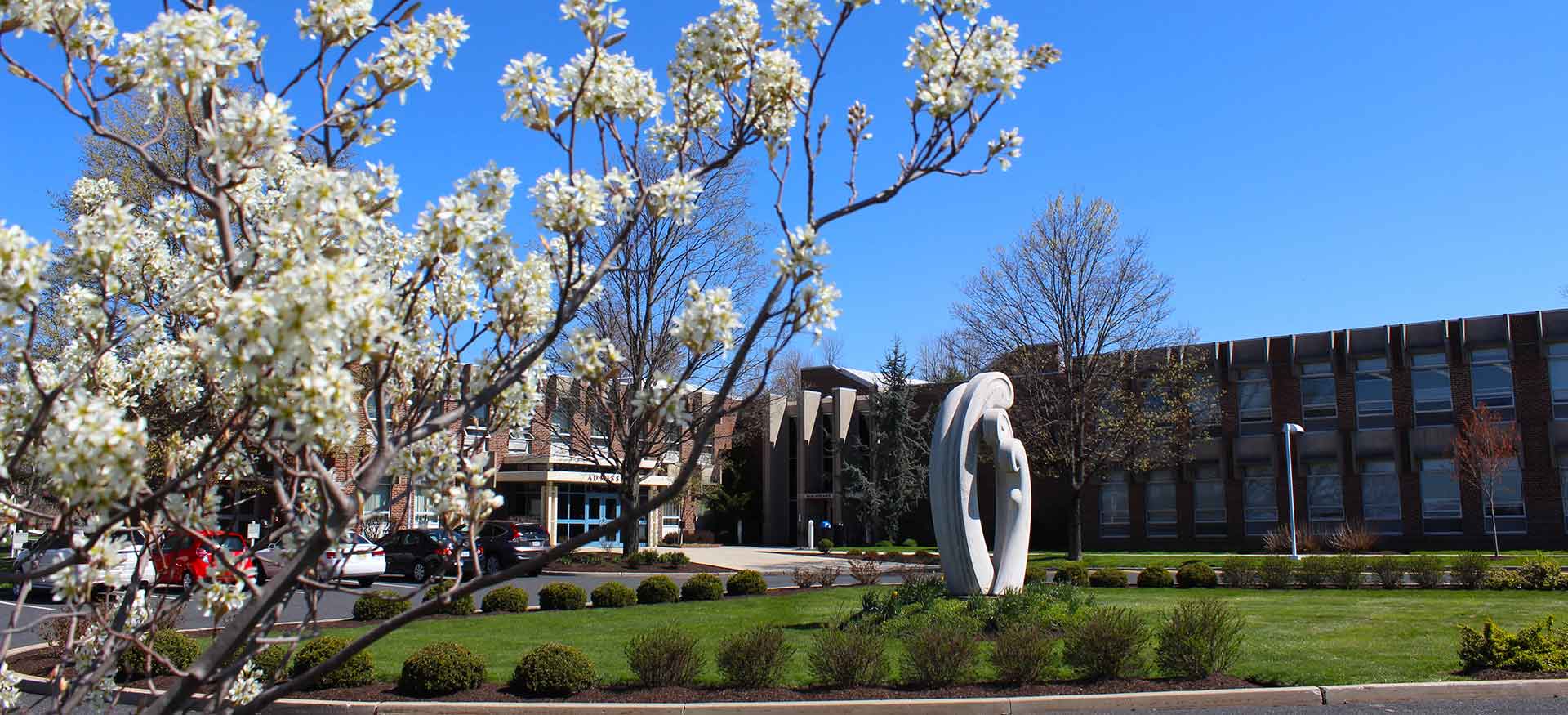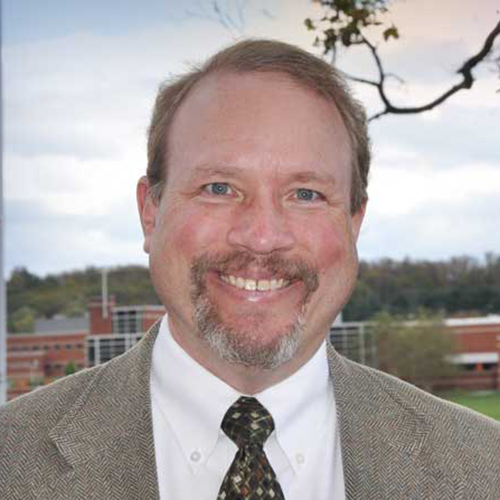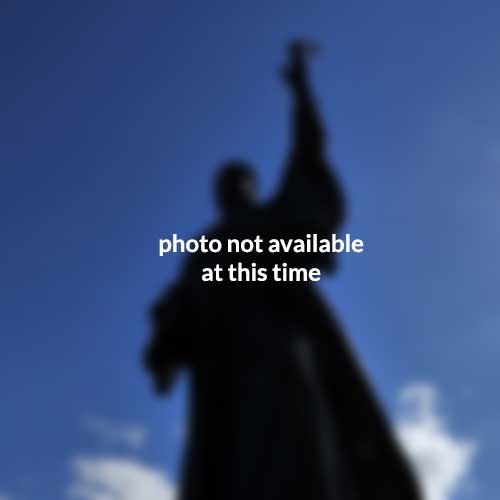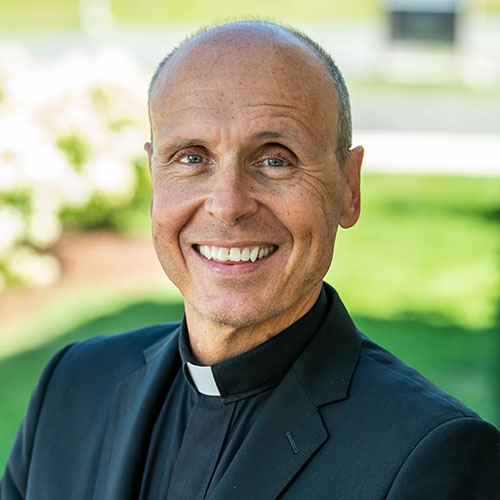Conflict in Ukraine: Special Panel Explores Cultural, Religious, and Geopolitical Factors
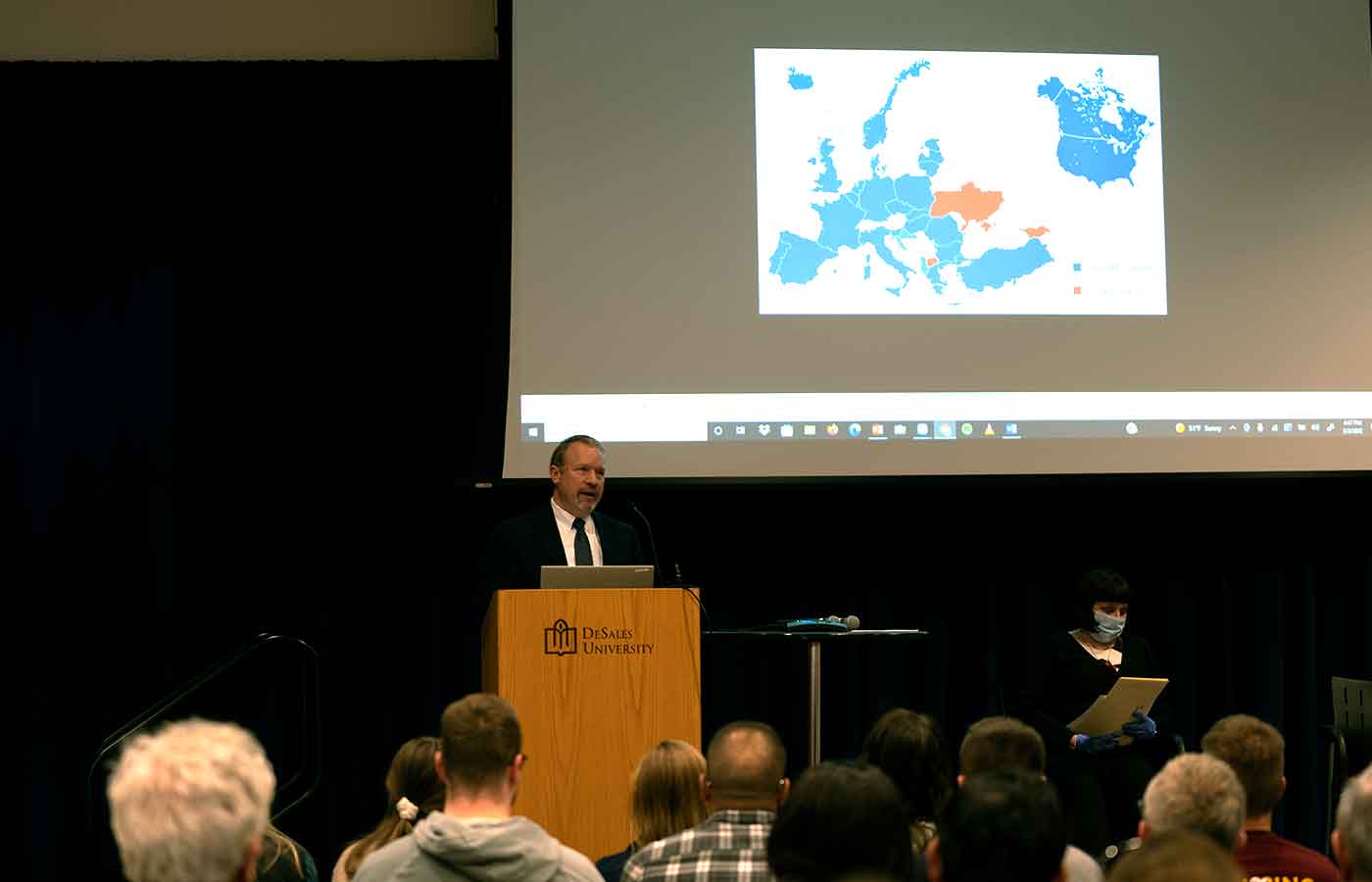
“It is such a complex problem.”
That’s how Andrew Essig, Ph.D., professor of political science, framed the war in Ukraine during a special panel exploring both sides of the conflict. Father James Greenfield, OSFS ’84, president of DeSales, opened the conversation with a prayer for peace and the protection of those “living through the horrors of war.”
Essig; Galina Yermolenko, Ph.D., associate professor of English; and Fr. Anthony Perkins, seminary professor at the Ukrainian Orthodox Church of the USA, then examined the religious, cultural, and geopolitical factors at the heart of the conflict.
“It’s easy to say Russia invaded, they’re bad. But you can look at Russia and say they actually do have some legitimate concerns. There are so many ways of looking at this. It is more complex than perhaps you’re being led to believe.”
Essig, who wrote his doctoral dissertation about post-Soviet Europe, noted that while the West views NATO as a source of peace, Russians see it as a threat. He encouraged the audience to use critical thinking and examine all sides.
Likewise, Fr. Perkins urged the audience to maintain humility and speak gently while analyzing the conflict. Yermolenko, a native of Ukraine, stressed the crucial roles that culture and history play.
“Even from my childhood, I remember gathering with relatives and the second topic after weather would always be history,” Yermolenko said. “History there is everything.”
Yermolenko explained the cultural forces dividing the two sides: the Russian view that they are all one people, the Ukrainian view that the two are split, and the deep divisions between East and West Ukraine that took root during the fall of the Soviet Union. She also referenced fallout from the 2014 Ukrainian revolution, including a ban on the Russian language, as well as Soviet symbols and holidays.
“This is not an ethnic conflict or a religious conflict,” she said. “It’s really about cultural differences.”
As for when or how the conflict will end, no one knows. Essig warned of the possibility of war spreading throughout the rest of Europe. When it comes to the future of Ukraine, he predicts the country could end up being split in two.
“At the end of the day, I can’t see a unified Ukraine after this,” he said.




